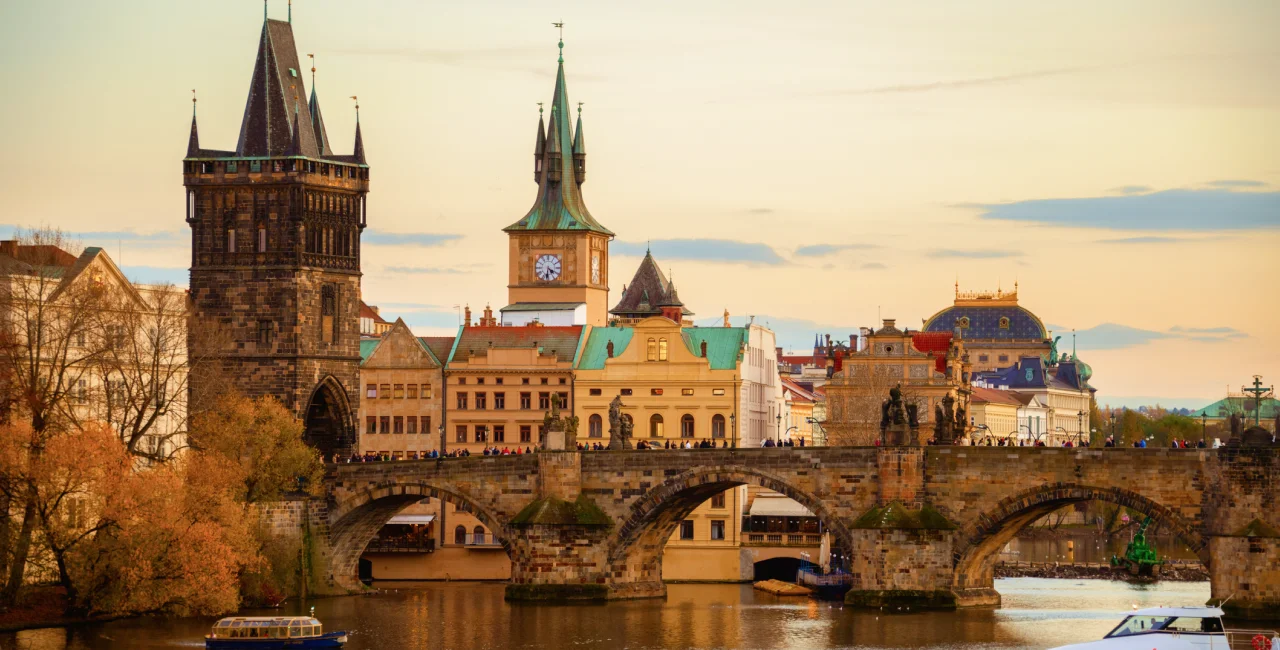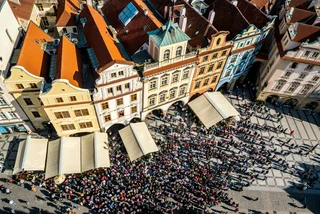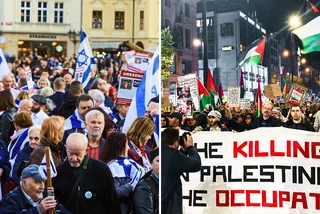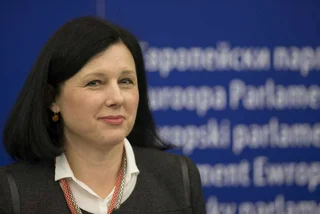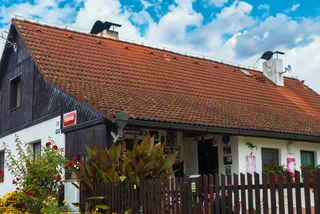people Prague dissident goes on hunger strike to protest low pensions
The Institute for the Study of Totalitarian Regimes (ÚSTR) is willing to help resolve the issue of low pensions for dissidents, which it considers a historical injustice. Jiří Gruntorád, a signatory of Charter 77 and founder of the Libri prohibiti library, has criticized the lack of action on this matter and is calling for the resignation of Minister of Labor Marian Jurečka.
To support his demand, Gruntorád began a hunger strike at the government headquarters on Nov. 17. The ÚSTR management has defended Jurečka, stating that he has been addressing the issue for a considerable amount of time.
economy Basic food prices 4 percent up between July and November
Basic food prices in November in the Czech Republic have increased by an average of four percent compared to July. The price of white yogurt has risen the most, with Czechs paying CZK 12.2 for a 150-gram package, a 49 percent increase from July. Similarly, the price of butter has increased by 24 percent to CZK 191.62 crowns per kilogram.
However, consumer potatoes and plain wheat flour have become more affordable. In total, eight out of the 13 basic food items in the analyzed basket have become cheaper. The Česká distribuční company reported a 31 percent discount on basic foodstuffs.
security Czech pundits talk migration at Prague seminar on Africa
Organized crime is the primary organizer of undocumented migration to the European Union, according to Pavla Novotná, the head of the Interior Ministry's asylum and migration policy section. She emphasized the need for cooperation with African states to address the issue. Speaking at the seminar Africa: Security Risks for Europe held in the lower house today, Novotná also discussed the change in the debate surrounding migration and the prevailing rhetoric of the EU taking control of immigration decisions.
Jan Beroun, the director of Czech Military Intelligence, stressed the importance of the Czech Republic's presence in Africa. Both speakers highlighted the security risks posed by internal migration in Africa. Managed migration was deemed unrealistic as a solution.
health Two-year-old Czech boy with rare disease to be treated in France
A two-year-old Czech boy named Martin, who is fighting an ultra-rare genetic disorder known as Aromatic L-amino Acid Decarboxylase (AADC) syndrome, will receive treatment in France at the start of next year. Due to Czech health insurance companies refusing to cover the cost of treatment, Martín’s parents took to the internet to secure the almost CZK 100 million needed to finance the required treatment for the young boy.
According to the Facebook page of fundraiser Donio, the treatment will take place in a specialized center in Montpellier, France in January and February 2024, with the exact date of the procedure kept secret due to potential changes.
society Hundreds rally in Prague for slain Palestinian children
More than 200 people gathered in Prague's Jan Palach Square yesterday for a rally to commemorate the murdered Palestinian children and call for an end to the fighting in Gaza. The participants carried Palestinian flags and banners, while the organizers read out the names and ages of the victims.
The event also included speeches in English, urging world leaders and the media to take action. The march proceeded to Old Town Square, Charles Bridge, and Lesser Town Square, where the names of the slain children were projected onto the facade of Charles University and candles were lit.
diplomacy Less than 2 percent of EC employees are Czech
Czech Foreign Minister Jan Lipavský expressed concern over the low representation of Czechs in EU institutions and other international organizations. According to data from the European Commission, 1.6 percent of its workforce, or 528 people, are Czech. This number is comparable to other EU countries with smaller populations. Belgium, Italy, and France have the highest number of office workers in the Commission.
The highest-ranking Czech representative is EC Vice-President Věra Jourová. Efforts have been made to support Czechs in the EU, and experts believe that recent developments have allowed more Czechs to enter prestigious positions.
Film Prague's Febiofest film festival files for bankruptcy
Prague's Febiofest film festival has filed for backruptcy, reports Radiožurnál. Founder Fero Fenič has claimed that he was never paid in full for the sale of the festival. The insolvency register indicates that festival director Kamil Spáčil's company has debts of more than CZK 23 million, with Fenič still owed around CZK 4.5 million.
"I was the biggest victim because I was never fully paid the purchase price," Fenič, who reclaimed Febiofest trademarks a year ago, told Radiožurnál. The festival, founded in 1993, did not take place this year. A statement from Spáčil is expected.
Economy Czech housing benefits to be processed digitally
Czech Minister of Labor Marian Jurečka has revealed that housing allowances will be fully processed digitally starting in December, aiming to simplify procedures. The move follows the implementation of online application options last summer. The digitization initiative aims to streamline a system long criticized for its bureaucracy.
Approximately 272,400 housing allowances were disbursed in September, an increase from 188,300 the previous year. Jurečka emphasized the ongoing effort to simplify social systems and enhance accessibility for applicants. Critics, including ANO's Aleš Juchelka, anticipate a potential rise in beneficiaries due to energy price hikes.
Education Czech Education Minister pushes for budget increase
Czech Minister of Education Mikuláš Bek plans to propose additional funds for his ministry at a Tuesday meeting with coalition partners. Seeking approximately five billion crowns, Bek aims to address budget shortfalls affecting teachers' salaries and increasing job numbers.
The proposal comes in response to looming challenges, with school unions announcing a day-long warning strike on Nov. 27 to advocate for increased education funding. Union calculations suggest an eight billion crown deficit in the departmental budget, emphasizing the need for sustained educational quality.
Culture Czech 'Light Zoo' opens in South Moravia
A new Světelná zoo (Light Zoo) in Drnholec, near Břeclav, features fifteen illuminated metal sculptures representing twelve animal species and also includes a light tunnel, swing, and maze. Open from Wednesday to Sunday until the end of January, the zoo enhances its animal sculptures with lights emphasizing distinctive features.
Created to utilize the area during winter evenings, visitors can explore and engage in light-based games. Additional attractions, like a lavender labyrinth and autumn world of pumpkins and pyramids, complement the seasonal experience. The owners plan to gradually expand the Light Zoo with new animal sculptures in the coming years.
Abroad Nude Czechs cause a scene at Polish swimming pool
Visitors from the Czech Republic have sparked controversy at a swimming pool in Prudnik, Poland, as they opted to change in common areas instead of the designated cabins. Concerns were raised, especially regarding the impact on children sharing the changing rooms.
The management of the Sójka swimming pool addressed the issue, emphasizing the need for separate changing spaces for different genders, a practice not adhered to by some Czech swimmers. The incident highlights cultural differences in attitudes toward nudity, with Czech pools often having more liberal policies.













 Reading time: 5 minutes
Reading time: 5 minutes 